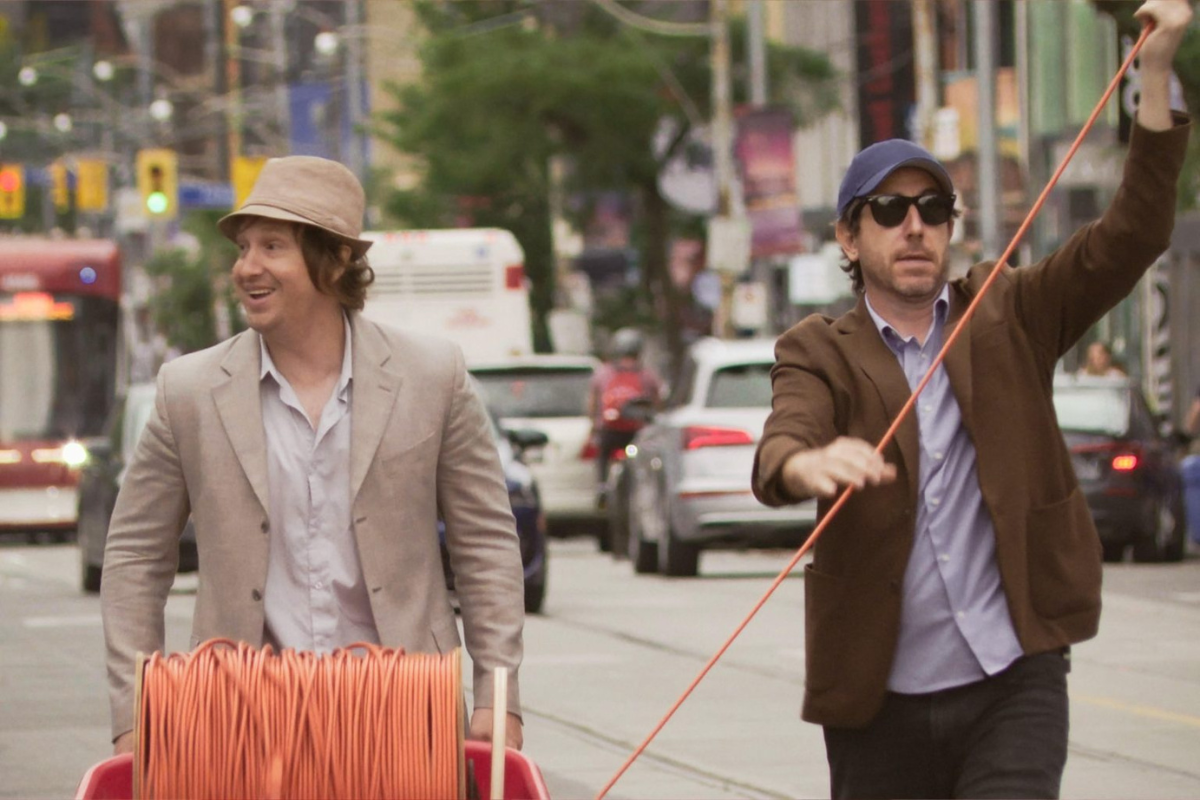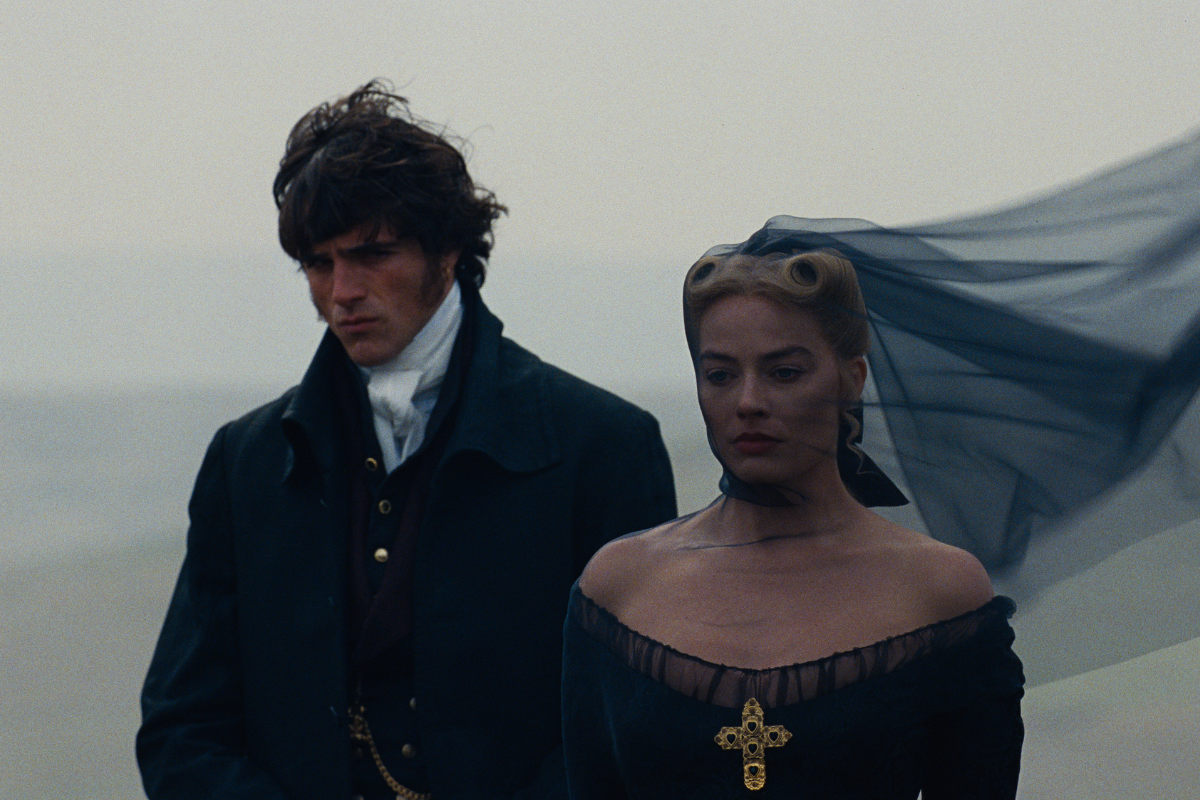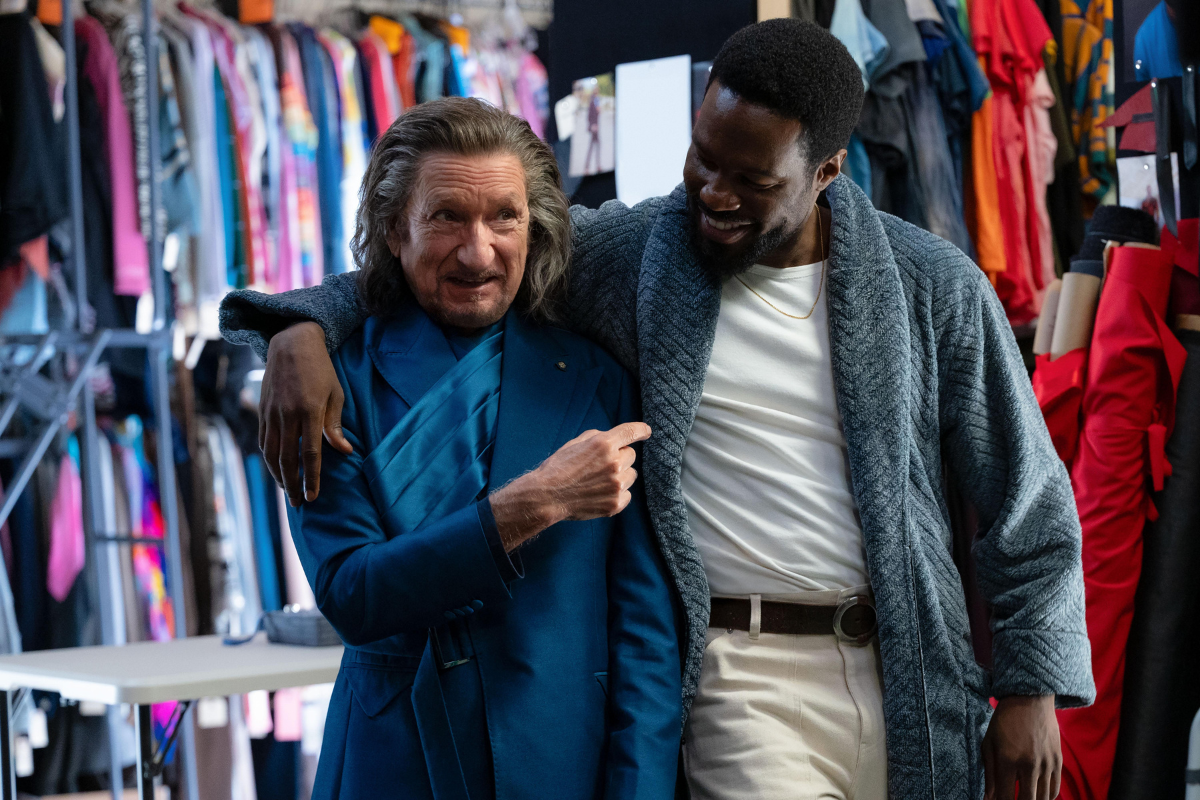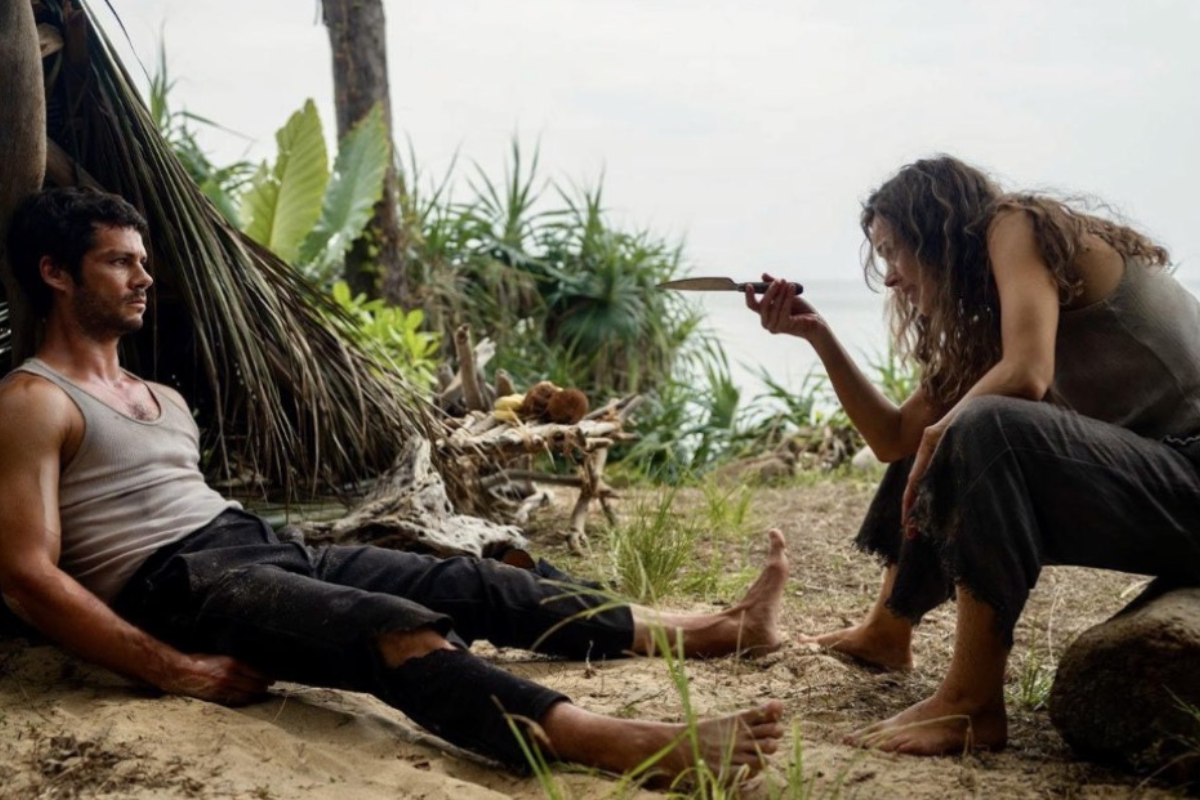The 11 Fundamental Questions: A Guide to a Better Screenplay Q & A with Aaron Mendelsohn
Aaron Mendelsohn sits down with Script to discuss his long, successful career and how his experience informed his new book.
Denny Schnulo began his writing career at age eleven with the release of his first collection of poems to the kids on the school playground. Believing that first hand reports are always best, he spent his early adult years living and working throughout the world. His writing today is informed by people he met and things they did together. Follow Denny on Twitter: @DennySchnulo
Aaron Mendelsohn is a working, produced screenwriter, a professor of screenwriting at Loyola Marymount University, and an elected officer and lifetime member of the Writers Guild of America West who has worked consistently in all formats and genres for over 20 years. Currently, he has a feature film, a drama series, and an MOW – a rare trifecta – in development at major studios and networks around town.
His new book, The 11 Fundamental Questions: A Guide to a Better Screenplay is based on the story-breaking method he came up with a decade ago to help craft and “stress test” outlines, pitches and scripts. Aaron also teaches the method in classes and seminars around the world. He was kind enough to sit down with Script to discuss his long, successful career and how his experience informed his new book.
Script: You have an eBook out, The 11 Fundamental Questions: A Guide to a Better Screenplay, what motivated you to write it?
AM: I’m not one of those writers who can conjure up a fully-formed story in his head and then pour it out on the page in an unbroken effusion of brilliance. I have to work at my story-breaking. Over the years, out of necessity, I cultivated a method that helped guide my story-breaking process, to very positive effect. The method is simply this: I ask myself a series of questions – 11 Questions, to be exact – that prompt ideas about key character and story points. Once I answer the questions to my satisfaction, I start filling in the story until I have a detailed outline.
A couple years ago I started teaching the 11 Questions method as a masterclass, and the response was so positive – from professional and emerging writers alike – I decided to turn it into a book.
Script: How does it stand out from the multitudes of other screenwriting books?
AM: I like to think I bring a unique perspective and angle to the party. The perspective is that of a produced, employed writer who has worked consistently in all formats and genres for over 20 years. Currently, I have both films and pilots in development at major studios and networks around town, and I used my method to break the stories on all of them.
The angle of a simple battery of questions – a “stress test,” as it were – that stimulates ideas about character and story is a unique one, in my opinion, because instead of yet another hefty academic discourse on the nature of writing, my (very slim) book is a quick, practical guide that can be applied immediately to anything with a story at its spine: screenplay, teleplay, pitch, book, etc. And my book goes to eleven.
Script: If there was only one thing a writer could take away from this book, what would you want it to be?
AM: That’s a tough one, because I feel all the questions are important in one way or another. But if I had to pick a stand-out, I think it would have to be “Question #3: What is the Central Idea?” I added this question a couple years ago after a conversation with screenwriter Billy Ray (“Captain Phillip”), with whom I serve on the Writers Guild West Board of Directors. He felt it was important that all stories have a Central Idea, which is an overarching notion or theme that pushes the story forward and is tested in every scene. It’s not a logline, it’s more like a thesis your story is testing out. To cite a couple examples, the Central Idea for The Matrix (in my view) is: Neo can only be the One when he believes he’s the One. For Mad Men: Don Draper’s worst enemy is himself and the shameful past he’s trying to escape. To me, the Central Idea is the glue that holds your story together.
Script: How far into your career were you before you actually applied the eleven points in your book?
AM: I’d been asking certain key story questions – ie. “What is my central character’s fatal flaw?” “What are the stakes?” – pretty much from the very beginning of my career, but in the last five years the questions crystallized into a more formalized method that I found myself repeating with each new screenplay or pitch I sat down to write. And the results were pretty dramatic: I sped up the story-breaking process, sold more pitches, wrote scripts that required fewer rewrites, and received fewer notes. The method worked.
Script: You've had a long, productive career and it's still humming. How did it all start for you?
AM: I started writing in the 90s with my UCLA buddy Paul Tamasy. We wrote a couple specs – neither of which sold – and then one day came across a book that we thought could be the basis for a pretty cool drama series. We optioned the book – for free – and came up with a pitch. Our agent at the time, who I think knew exactly five people in the business, sent us to Universal Television, and they sparked to the idea. After a round of pitching we landed a pilot order at Fox – my first job in the biz. The pilot quickly died on the vine, but shortly after we met a dog who could play basketball, and the rest is history.
Script: At what point or which project inspired the most confidence in you, convinced you this was a career you could prosper in?
AM: Early on in my career, I decided to write a script about the break-up of my parents’ marriage. A few years earlier, my father had come out of the closet, ending 27 years of marriage, and since I couldn’t afford therapy at the time I decided to pour out my feelings on the page (which still required much story work, mind you!). At first none of the networks would touch the script, but eventually Lifetime optioned it and made the movie, and it did very well and helped to de-stigmatize an issue that had caused generations of men and women a lot of shame, depression, anger and humiliation. When I saw how my words could not just entertain, but move emotions and spark conversations, I was hooked.
Script: Which project or script taught you the most about the craft?
AM: Actually, Air Bud taught me a lot about the craft, because all we had to work with was a stupid pet trick, and from that we had to develop characters and a story that could transcend a gimmick and sustain a viewer’s attention for more than 30 seconds. When I heard the laughter and cheers on opening night, I knew we’d succeeded.
Script: Do you have a personal favorite of all your scripts?
AM: I wrote a pilot script recently called The Adjuster, about a mild-mannered insurance adjuster who makes some dramatic changes in his life. I loved writing that script because it allowed me to vent about a bunch of stuff I’ve been going through in my forties. Therapy at its best!
Script: Is there a script of yours you want to do over?
AM: Back in the halcyon days of the early 2000s, when you could count on selling pitches and spec scripts with more than a snowball-in-hell’s assurance, I sold three feature ideas that were centered around some kind of fantastical premise. A man’s body goes on strike against his brain, an accountant gets a knock on the head and thinks he’s an action hero, that sort of thing. The scripts leaned into their high concepts to the max and were loaded with laughs and clever set pieces, but what I think they were lacking was a strong, emotional rooting interest – exactly the stuff we were so careful to weave with abundance into Air Bud. I could’ve really used my 11 Questions then!
Script: Is there an idea or a concept you've been hanging on to for years but just haven't had the chance to develop?
AM: I’m really into true stories these days. I’ve come across a number of gems, with really wonderful characters and fascinating stories that I’d love to adapt for the big screen but haven’t yet been able to sell. Maybe because they’re as far away from Air Bud as you can get. Being known for a certain genre has its perks – particularly if you become a “go-to” writer in that area – but it often makes it difficult to branch out and spread your wings creatively.
But there’s hope. My old partner Paul managed to break out of the family brand and was nominated for an Oscar a couple years ago for co-writing The Fighter – a terrific true story. So it can be done.
Script: How do production companies usually approach writers to develop an idea they feel good about?
AM: Often it starts with a general meeting, prompted by a favorable reading of a script submission or writing sample. The company has an idea, book, article or story for which they want you to come up with a “take.” If it’s a really good take, you might get the job. If you write a great script, they might just come to you with their next idea.
Script: What percentage of your paid projects has eventually been made?
AM: If I were a professional baseball player, I would’ve been sent down to the minors a long time ago.
Script: How often do you work off someone else's concept versus your own idea?
AM: Much more so than I used to. I used to pride myself on being a writer of original stories. These days the word “original” – also known as “not based on a pre-existing property” – strikes the fear of God in many producers. So I’ve had to adjust and become much more open to and aggressive about developing the ideas of others. Fortunately not all their ideas are bad.
Script: What’s the most important thing for an aspiring writer to consider when approached about taking on a project?
AM: If it’s based on a true story or preexisting property, it’s important to do your research and come in with a decent breadth of knowledge on the subject – at least enough to fool them into thinking you’re something of an expert. It’s also helpful to bring what one hopes is a fresh angle on the idea, rather than trying to read their minds too much. By being bold, you have a better chance of standing out from the crowd. And even if they don’t buy your take, they’ll remember you for the next one.
Script: Any secret to getting asked?
AM: Write a script that pops. It may or may not sell, but what it will most certainly do is serve as a helluva calling card.
Script: How do you feel about contests?
AM: They can be a viable route to a career, but they have to be the right ones. The screenwriting contests that are respected – PAGE, Nichols, contests along those lines – can be very good for getting attention. Even if you don’t win but you’re a finalist or even a semi or quarter finalist, you can attract the attention of managers, agents and perhaps even producers. It makes for great eye-grabbers in emails and cover letters. Just be mindful to steer clear of the multitude of money grab contests out there that are only after your entry fee.
For a limited time Script readers can purchase Aaron’s new eBook at a 20% discount, $3.98 here: The 11 Fundamental Questions: A Guide to a Better Screenplay
- More articles by Denny Schnulo
- Dr. Format Answers Your Questions
- Story Structure: The Four-Act Structure
Download Free Screenwriting Resources as our gift to you when you sign up for our newsletter!
Denny Schnulo began his writing career at age eleven with the release of his first collection of poems to the kids on the school playground. Years later as he struggled through the Writers’ strike of 1988 he once again stood tall against the wrath of bullies. Believing that first hand reports are always best, he spent his early adult years living and working throughout the world. His writing today is informed by the real people he met and things they did together. Denny and his family live in Chandler Arizona, where the heat forces him into his den to write. Follow Denny on Twitter: @DennySchnulo







